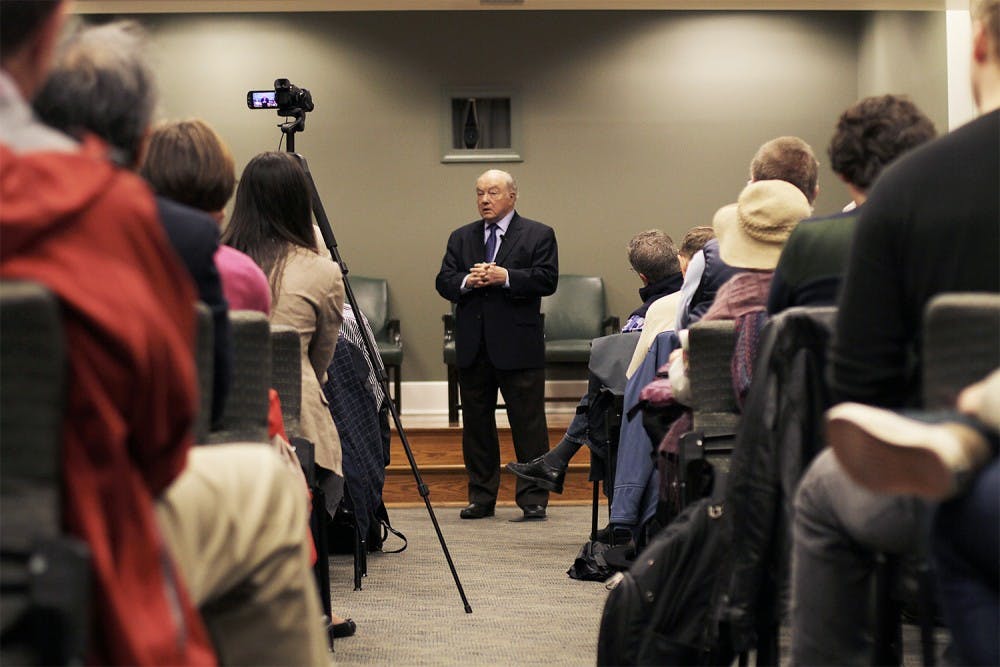Jack F. Matlock Jr., a Greensboro native and former U.S. ambassador to the Soviet Union and Czechoslovakia, recounted the war’s end from his perspective — just over 25 years after the Berlin Wall fell.
The lecture, titled “From Gorbachev to Putin: Russia and the U.S. in the Post-Cold War World,” drew a full crowd and many questions from the audience, though few students attended. Matlock said comparing today’s political situation to the Cold War is inappropriate.
“There’s all sorts of talk today about Cold War II, about the confrontation particularly over in Ukraine as having echoes of the Cold War — and indeed the rhetoric sounds very similar,” Matlock said. “Let me say right up front that I think that is an exaggeration. It is probably not accurate to compare — at least the magnitude and its implications — of what is happening today and what happened during the Cold War.”
He said the Cold War was based on a different philosophy throughout the world than the issues that are rising up between the United States and Russia today.
“That doesn’t mean that what we are experiencing today is good or is trivial or isn’t dangerous, but it does, I think, exaggerate things a bit to compare it to the Cold War,” he said.



